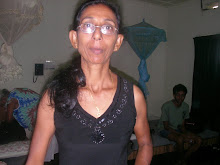




William Auld
William Auld (6 November 1924 – 11 September 2006) was a Scottish poet, author, translator and magazine editor who wrote chiefly in Esperanto. He was nominated for the Nobel Prize in Literature in 1999, 2004, and 2006 making him the first and only person to be nominated for works in Esperanto[citation needed]. His magnum opus, La infana raso (The Infant Race), is a long poem that, in Auld's words, explores "the role of the human race in time and in the cosmos," and is based heavily on The Cantos by Ezra Pound. Auld began to learn Esperanto in 1937 but only became active in the propagation of the language in 1947, and from then on wrote many works in Esperanto. He edited various magazines and reviews, including Esperanto en Skotlando (1949-1955), Esperanto (1955-1958, 1961-1962), Monda Kulturo (1962-1963), Norda Prismo (1968-1972), La Brita Esperantisto (1973-1999) and Fonto (1980-1987). He was the Vice-President of the World Esperanto Association (1977-1980), president of the Academy of Esperanto (1979-1983), and honorary president of the Esperanto PEN Centre. In 2001, he donated his large personal collection of Esperanto literature to the Scottish National Library, where it is now housed.
List of works
Collected Poetry
Spiro de l' pasio (1952)
La infana raso (1956)
Unufingraj melodioj (1960)
Humoroj (1969)
Rimleteroj (with Marjorie Boulton, 1976)
El unu verda vivo (1978)
En barko senpilota (1987)
Unu el ni (1992)
Anthologies
Angla antologio 1000-1800 (poetry editor, 1957)
Esperanta antologio (1958/1984)
25 jaroj (poetry editor, 1977)
Skota antologio (associate editor, 1978)
Sub signo de socia muzo (1987)
Nova Esperanta Krestomatio (1991)
Plena poemaro: Miĥalski (ed. 1994)
Tempo fuĝas (1996)
Translations from English
La balenodento , by Jack London (1952)
Epifanio , by Shakespeare (1977)
La urbo de terura nokto , by James Thomson (1977)
Don Johano, Kanto 1 , by Lord Byron (1979)
La robaioj de Omar Kajam , by Edward Fitzgerald (1980)
La sonetoj , de Shakespeare (1981)
Fenikso tro ofta , by Christopher Fry (1984)
Montara vilaĝo , by Chun-chan Je (1984)
La graveco de la Fideliĝo , by Oscar Wilde (1987)
La komedio de eraroj , by Shakespeare (with Asen M. Simeonov, 1987)
Omaĝoj. Poemtradukoj (1987)
Gazaloj , by Hafez (1988)
Spartako , by Leslie Mitchell (1993)
La stratoj de Aŝkelono , by Harry Harrison (1994)
Teri-strato , by Douglas Dunn (1995)
La kunularo de l' ringo , by J.R.R. Tolkien (1995)
La du turegoj , by J.R.R. Tolkien (1995)
La reveno de la reĝo, by J.R.R. Tolkien (1997)
La hobito , by J.R.R. Tolkien (poems and songs; with Christopher Gledhill, 2000)
Kantoj, poemoj kaj satiroj, by Robert Burns (with Reto Rossetti, 1977)
Jurgen, by James Branch Cabell (2001)
Aniaro, by Harry Martinson (from Swedish with Bertil Nilsson, 1979)
Song collections
Floroj sen kompar (with Margaret Hill, 1973), British folksongs translated into Esperanto
Kantanta mia bird (with Margaret Hill, 1973), British folksongs translated into Esperanto
Dum la noktoj (with Margaret kaj David Hill, 1976), original songs
Esperanto: A New Approach; (1965)
Paŝoj al plena posedo (1968)
A first course in Esperanto (1972)
Traduku! (1993)
Bibliografio de tradukoj el la angla lingvo (with E. Grimley Evans, 1996)
Essay collections
Facetoj de Esperanto (1976)
Pri lingvo kaj aliaj artoj (1978)
Enkonduko en la originalan literaturon de Esperanto (1979)
Vereco, distro, stilo (1981)
Kulturo kaj internacia lingvo (1986)
La fenomeno Esperanto (1988)
La skota lingvo, hodiaŭ kaj hieraŭ (1988)
Pajleroj kaj stoploj : elektitaj prozaĵoj (1997)


























